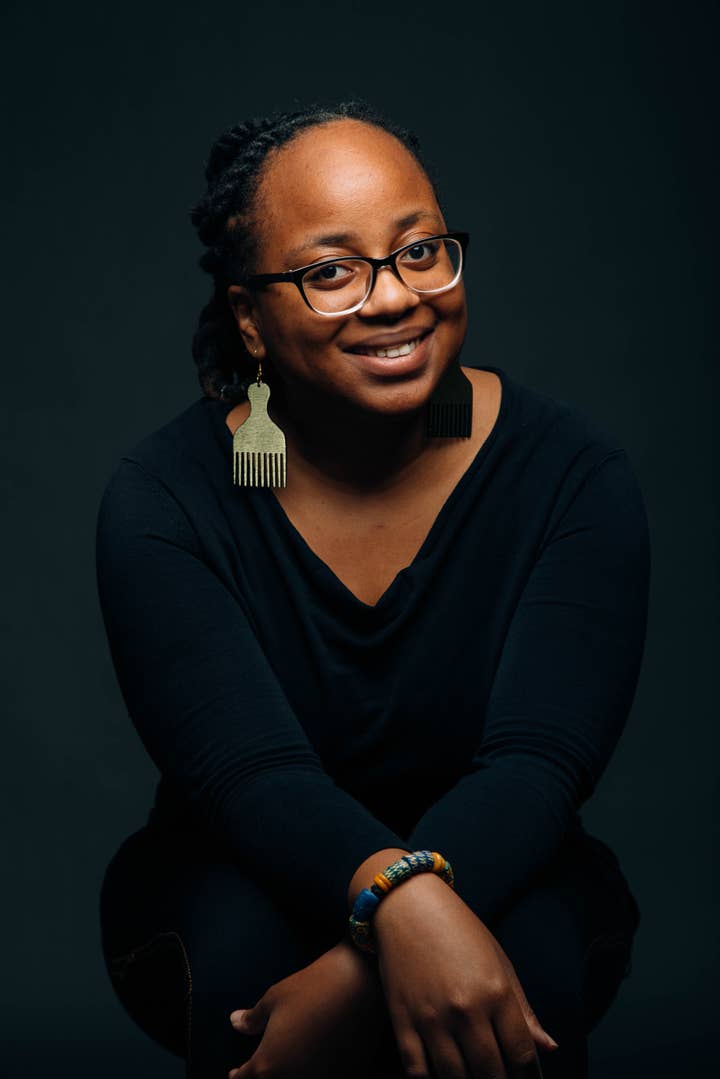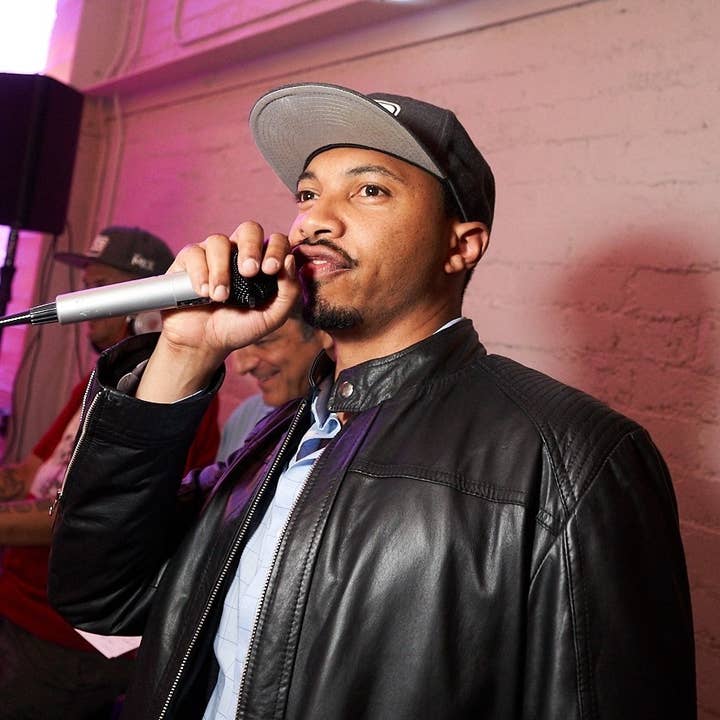Humble names Sithe Ncube and Justin Woodward strategic advisors for Black Game Developer Fund
New advisors discuss challenges faced by Black developers worldwide, and how the fund can make an impact
Earlier this year, Humble Bundle committed $1 million per year toward publishing games by Black developers through its Black Game Developer Fund. Now, the publisher is bringing on two strategic advisors to facilitate the initiative: Justin Woodward and Sithe Ncube.
Woodward, the co-founder of Interabang Entertainment, will focus on working with developers based in North America and Europe. Ncube, one of the Sub-Saharan Africa organizers for the Global Game Jam and the founder of Prosearium.net -- which documents African women game developers and their games -- will work with developers from Africa.
Speaking with GamesIndustry.biz, both Woodward and Ncube expressed optimism for the fund as a way to elevate the voices of Black developers as well as connect them to mentors, further resources, and fellow developers with shared experiences.
"When I was a fledgling game developer I did not have support from professionals I could identify with culturally or racially," Woodward says. "I knew early on that changing my location and getting mentors on my side was important to obtaining some success in the industry. In the end I uprooted to San Francisco and hustled to earn the respect of some amazing mentors who played a huge role in helping to build my business and game development acumen.

"The challenge in my journey was a lack of a roadmap. I hit what seemed to be insurmountable dead ends and discouraging roadblocks trying to find my way to mentors and funding opportunities, but I eventually found a path.
"Helping to break down roadblocks that Black developers encounter, including finding funding for their games and letting them know that someone they identify with has their back, means the world to me. I hope this program sets an example, positively affecting the way that we as an industry approach these issues systematically."
Ncube specifically honed in on the fund's ability to bolster voices that would otherwise remain unheard, noting that there are few initiatives currently available to support African developers explicitly. The lack of funds for African developers, she says, is an increasingly larger problem due to the current pandemic. And that applies not just to individual developers, but also to those seeking to fund full studios and obtain publishing opportunities.
"Studios are much more difficult to fund than solo development work, and the avenues to financing this are limited in many places on the continent," she says. "And though perceptions about game development as a career are shifting, there is still not a lot of security in game development work that would motivate people to commit to full-time careers in game development roles. This fund can give studios an opportunity to fund themselves even if just partially. In addition to this, there is a potential pathway to publishing for developers with the BGDF."
"The work of Black developers does not see as much light as it may have otherwise and does not reach the people it may inspire to be recreated"
Sithe Ncube
Ultimately, lack of funds available to Black developers worldwide is far from a new problem. And because it has always been significantly harder for their games to be spotlit, Ncube says, the history of game development in general disproportionately excludes Black voices despite their presence and work in the industry from its inception.
"It is unfortunate that the documented history of game development largely excludes Black developers," she says. "The ripple effects from this do carry on to modern game development as many developers reference and call back to works of the past. With this, the work of Black developers does not see as much light as it may have otherwise, and does not reach the people it may inspire to be recreated.
"But history isn't over, and with awareness we can now deliberately create paths that shape the future of games to be more inclusive. Initiatives over the years that have focused on highlighting Black developers and now the BGDF are an important part of this. Communities for diverse game developers exist but this isn't enough. Funding and resources, one of these being mentorship, are needed to allow this work to reach further."

Ncube adds that these problems disproportionately impact Black women, though she notes initiatives such as Black Girl Gamers and her own Prosearium.net are creating spaces for Black women in games to find solidarity and space for their contributions.
"Considering the exclusion of Black developers in game development history, Black women are even more largely excluded from history and representation in games," she says. "This can be quite discouraging as the lack of presence of Black women in games often gets reinforced on all levels -- from looking at event speakers to trying to create characters in games that have your skin and hair as a Black woman.
"I think supporting existing spaces and other initiatives where Black women are doing the work to support each other is important. Empowering the people already doing the work to reach further and educate more people is more effective than trying to come up with solutions for a community from the outside."
Woodward says the biggest challenge for Black developers globally is access: to funds, to opportunities, and to networks -- specifically networks of successful Black executives and veteran industry leads who can provide mentorship to up and coming developers and studios. Part of the aim of the fund is to build a community of developer alumni and resources that can be called upon to support future studios entering the program, in addition to the funds Humble provides.
"Most Black game developers I spoke with want their hard work and artistic expression to speak for itself"
Justin Woodward
"Most Black game developers I spoke with want their hard work and artistic expression to speak for itself, and don't even think about waiving the race flag while focusing on their craft," he says. "Pride aside there is a fine line between bootstrapping and unnecessary struggling that occurs when working in a field where you feel underprivileged.
"We all need support and counsel at some point, if not regularly. Mentorship brings moral support through shared empathy, tough love, wisdom, and shared knowledge, all of which play a major role in allowing minorities to maintain their independent integrity while bridging the gap of inequalities faced while figuring out their entrepreneurial trajectory."
Both Woodward and Ncube will help scout teams and titles for the fund, work with the studios through the application process, and assist in selecting the projects that are funded. For developers applying to the fund, Woodward wants to see strong Black leadership from the studio, an understanding up front of what kind of funds the project will need and their target market, fun gameplay, and a focused aesthetic vision.
"My advice would be to make sure you have a concise vision for what you want to create with a keen awareness of how your game fits within the marketplace," he says. "Express your vision as well as you can in your application, trailers, and other pitch materials in an organized way. If for whatever reason your game wasn't chosen for the fund, use it as fuel to perfect your pitch and gain feedback. Lastly, stay persistent."
Ncube agrees that she is interested in developers and studios that can communicate their goals and vision effectively -- and especially encourages more submissions from Black developers outside the US.
"There are so many unseen experiences from Black people around the world both in their work and their journeys as developers," Ncube says. "Tell us what makes you stand out and show us the work you've put towards achieving your vision."

